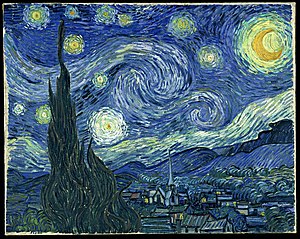Personally, I don't like to watch TV shows or movies to dissociate, at least not in the sense of "escaping" or just having a good time. In fact, I prefer movies that are difficult, emotionally, but that lead me through a process of catharsis. Same with novels (although I haven't had much time for these the past several years). This is a process of dissociation, but a more active one, I think, and one that I've come to see as even healthy in certain ways. When I watch a drama with good characters (i.e. varied in personality types, depth, emotion), I feel the depicted emotions as if they were my own. If it's well done, I can feel deep sadness, joy, hope, despair, hatred, vengeance, justice, elation. This, however, is where it gets dangerous. Drama works on the emotional center, and it follows the direction of the production whether positive or negative. If it is not guided by someone with a conscience, it easily activates strictly negative and "lower" emotions, without resolving them or sublimating them to a higher level. Good literature and drama should show human behavior in all its complexities, inspire empathy (pathos), and make the "way out" clear, either directly or indirectly (as in a tragedy, perhaps).
When you come to identify with a character in a novel or movie, you are in essence learning a lesson vicariously. The identification leads you through an emotional progression. If a character grows, a part of you grows. In this regard, Dabrowski had a few insights. Dabrowski always advised for developing individuals to read the autobiographies or biographies of exemplars. To read of their experiences and growth facilitates the growth of the reader, almost as if you come to "resonate" with their experiences, thus learning from them. Also, to read novels dealing with higher level "dynamisms", like selflessness, altruism, sacrifice, morals. If you identify with a character who is then put in a situation that requires self-sacrifice, if they take that road, it helps solidify selflessness within oneself. What I've noticed today is that there are very few, if any, "exemplars" in modern movies and literature. At least not in the popular stuff.
Novels written by unilevel individuals have no moral compass, no higher resolution of conflict. These have a negative effect because they simply reinforce the status quo of people's emotional lives, even making them worse in some cases. A lot of genre fiction falls into this category, albeit there are exceptions to every rule. Most horror movies, action, comedies, romance, scifi/fantasy, are pretty generic and lack anything higher. But I think all have the capacity to lead the viewer through something real, if the characters are developed well enough. Emotional dramas, whether they are set in ancient Egypt, Victorian England, another dimension, or in space, are always applicable to real life dramas. I think the emotional center feels it and learns from it, regardless.
I think Firefly is one pretty good example. It is basically real people in real human dynamics which happens to take place in another solar system. The setting is secondary, I think, and it serves as a "remove" in order to let the viewer relate what he or she watches to what happens in the "real world". You can portray everything from racism, fascism, and bigotry right down to interpersonal dynamics. I think Battlestar Galactica did that well, as well. In that show, you have truly complex characters. A catastrophe brings out the best and worst in people, who still have their own emotional baggage to deal with, and it influences all their interactions and decisions. You see people making all the same mistakes, people failing at communication with each other. Some learn and grow, working through past traumas. And some remain exactly the same. Some disintegrate even further.
I've had the same emotional reactions watching those two shows as reading Faulkner or watching Oliver Twist, The Pianist, or The Live of Others, or even the autobiographies of patients that Dabrowski included in his last book. The first time I saw the Pianist I cried afterwards for a half an hour. It was unbearable, and yet cleansing. Same thing happened the second time I watched it.
In a nutshell, I'd say the most valuable dissociative dramas are those with flawed, complex, realistic characters who learn or grow in some way, which takes you through a similar process. One of my recent favorites was the German Sophie Scholl movie. The scene where her mother visits her in prison before her execution was heartbreaking. Not only did the film give practical insights into the nature of pathocracy, it also took you through the inner experiences of just a few people who were forced to learn some big lessons as a result of their own carelessness.
I think dissociation can be positive if it teaches you something emotionally and/or intellectually. Many of the insights I've had on ponerology have been by watching movies and TV shows, as well as documentaries. Same with "positive disintegration". Not sure about games or fantasies. My fantasies tend to be me in situations where I'm asked a question and to which I formulate a response. That's also where I come up with a lot of the ideas which I later write (although I'm always more eloquent in my imagination!).












